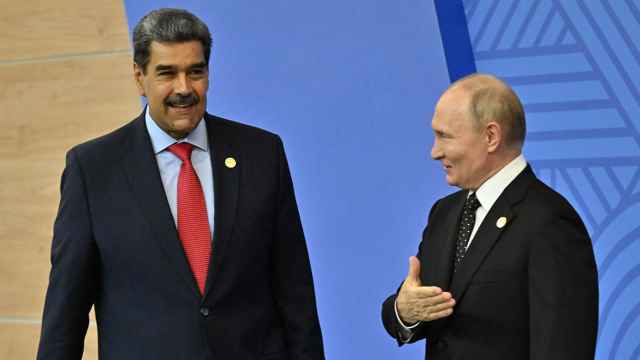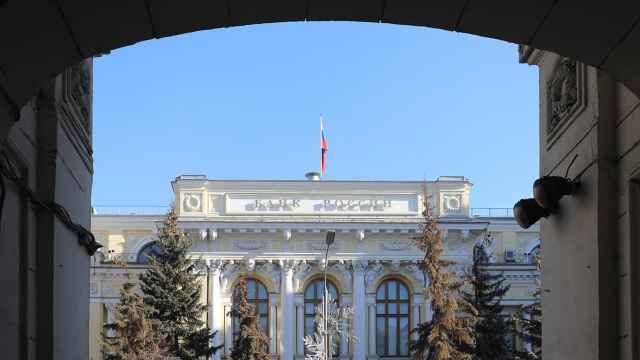A majority of Russians are weary of rampant corruption, with 52 percent ready to report graft, according to an annual corruption report by Transparency International released Thursday.
But this dissatisfaction has yet to translate into action, said Yelena Panfilova, head of Transparency International's Russia office.
“We don't know whether they would dare to actually do that [report graft],” Panfilova said.
“Only 7 percent have actually faced corruption and thought it necessary to contest it,” she said.
Tellingly, the number of people who have to pay bribes remains unchanged at 26 percent, placing Russia on par with Belarus, Thailand, Turkey and Papua New Guinea, according to the new report.
Comparative data from last year's report about how many people were ready to report graft is unavailable because Transparency did not include that question in its previous survey. Last year's report did say, however, that only 37 percent of Russians had faith in the government's anti-corruption crackdown.
President Dmitry Medvedev, who has made the fight against corruption one of the key goals of his presidency, said in his state-of-the-nation address last month that corruption remained a major problem and proposed fining bribe takers 100 times the amount of money they accept.
This year, bribery grew in health care, education, land deals and the judicial system, but the increase was compensated for by a slight decline in corruption in state business regulators, law enforcement agencies and utilities companies, says the Global Corruption Barometer Report posted on the watchdog's web site.
The study indicated that 48 percent of Russians doubt that Medvedev's fight against corruption is effective, while 24 percent believe that it is making progress.
The Russian part of the survey was conducted in July by Gallup International at the watchdog's request and covered 1,500 people. The report did not say which regions were included or indicate a margin of error.
Russia was ranked in the group of countries where 20 to 29.9 percent of the populace had to pay bribes this year, the report said. The group is dominated by developing countries, with Romania and Hungary being the only EU members on the list.
The world's most corrupt countries, where more than 50 percent of the population is involved in graft, are Afghanistan, Cambodia, Cameroon, India, Iraq, Liberia, Nigeria, the Palestinian territories, Senegal, Sierra Leone and Uganda, the report said.
The top-tier group of countries, with fewer than 6 percent of the populace involved in graft, comprises the United States, Britain, Canada, Germany, Switzerland, Israel, Spain, Hong Kong and South Korea as well as, somewhat unexpectedly, Georgia, the only former Soviet republic in the cluster.
The Global Corruption Barometer Report 2010, released on the International Anti-Corruption Day on Dec. 9, polled 91,000 people in 86 countries and territories nationwide.
An earlier survey by Transparency International, the annual 2010 Corruption Perceptions Index, published in October and based on the opinions of analysts and businessmen, ranked Russia 154th among 178 countries on corruption, on par with Tajikistan and Kenya.
A Message from The Moscow Times:
Dear readers,
We are facing unprecedented challenges. Russia's Prosecutor General's Office has designated The Moscow Times as an "undesirable" organization, criminalizing our work and putting our staff at risk of prosecution. This follows our earlier unjust labeling as a "foreign agent."
These actions are direct attempts to silence independent journalism in Russia. The authorities claim our work "discredits the decisions of the Russian leadership." We see things differently: we strive to provide accurate, unbiased reporting on Russia.
We, the journalists of The Moscow Times, refuse to be silenced. But to continue our work, we need your help.
Your support, no matter how small, makes a world of difference. If you can, please support us monthly starting from just $2. It's quick to set up, and every contribution makes a significant impact.
By supporting The Moscow Times, you're defending open, independent journalism in the face of repression. Thank you for standing with us.
Remind me later.





